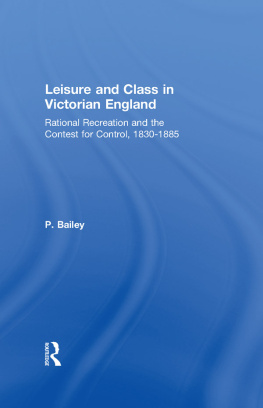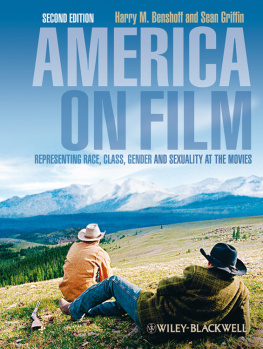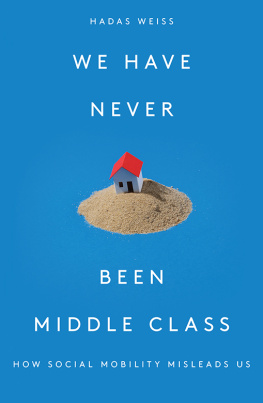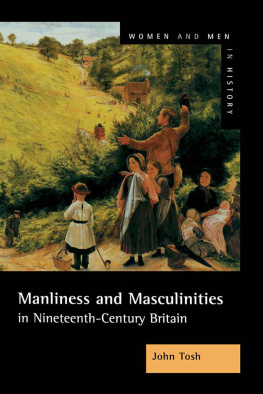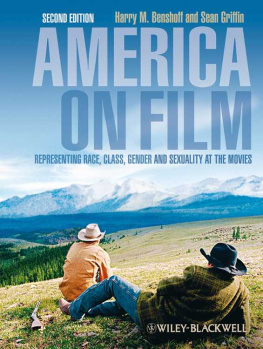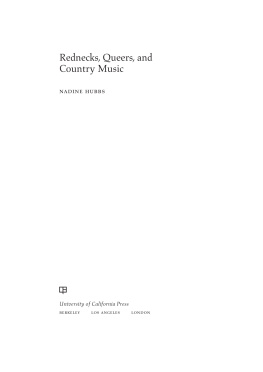A Necessary Luxury

A NECESSARY
Luxury
Tea in Victorian England
JULIE E. FROMER
Ohio University Press
Athens
Ohio University Press, Athens, Ohio 45701
www.ohioswallow.com
2008 by Ohio University Press
All rights reserved
To obtain permission to quote, reprint, or otherwise reproduce or distribute material from Ohio University Press publications, please contact our rights and permissions department at (740) 593-1154 or (740) 593-4536 (fax).
Printed in the United States of America Ohio University Press books are printed on acid-free paper 
15 14 13 12 11 10 09 08 5 4 3 2 1
Library of Congress Cataloging-in-Publication Data
Fromer, Julie E., 1970
A necessary luxury : tea in Victorian England / Julie E. Fromer.
p. cm.
Includes bibliographical references and index.
ISBN 978-0-8214-1828-4 (alk. paper) ISBN 978-0-8214-1829-1 (pbk. : alk. paper)
1. English literature19th centuryHistory and criticism. 2. Literature and societyGreat BritainHistory19th century. 3. TeaEngland. 4. Tea in literature. 5. National characteristics, EnglishHistory19th century. 6. EnglandSocial life and customs19th century. I. Title.
PR461.F76 2008
820.9'355dc22
2008039562
Contents
Illustrations
Preface
My scholarship in Victorian literature has always been grounded in my interest in material culture. My initial exploration of tea began from the vantage point of anthropology, analyzing Victorian histories of tea as examples of tourism. As a reader who has always loved nineteenth-century novelsthe longer the betterI started to notice how much attention authors paid to the rituals associated with drinking tea, and I gradually traced the patterns that emerged from literary scenes of tea drinking. Since an awareness of the larger significance of tea in English culture and history helps to create a broader understanding of literary tea scenes, the structure of this book follows my own path to tea.
investigates representations of tea drinking and English national identity in nonfiction sources, including tea histories, advertisements, and periodical articles. Basing English national identity on a commodity imported to England from foreign locations and exotic cultures created tension within tea histories and advertisements. Nineteenth-century responses to the threats posed by a national thirst for foreign tea imports clustered around three strategies of reasserting the boundaries between self and other, between English tea consumer and Chinese tea producer: brand loyalty, supported by hygienic packaging and manufacturing; affirming the power of English identity through the consumption of global commodities; and expanding the empire to ensure the cultivation of tea within British-controlled colonies.
Examining sources similar to those of analyzes representations of tea drinking that suggest that English tea drinkers of all classes were united by their preference for tea. While tea histories claim tea as the national beverage, however, they define a specifically middle-class set of values. Within these texts, middle class signifies a moral system of values, rather than a strictly monetary system of class distinctiona moral middle ground that could help to unify the beliefs and identities of all the different socioeconomic classes in England.
moves from issues of class and community to issues of gender identity. Further analyzing tea histories, advertisements, and periodical articles, this chapter explores representations of gender and the role of tea in simultaneously bringing men and women together for a moment of shared intimacy and reinscribing gender distinctions in preparing and consuming the beverage.
investigates the role of tea in three mid-Victorian novels: Emily Bronts Wuthering Heights (1847), Elizabeth Gaskells North and South (185455), and Lewis Carrolls Alices Adventures in Wonderland (1865). This chapter focuses on the concept of communitas and the ways in which the tea table creates expectations of community and connection. I argue that tea serves simultaneously as a universal symbol of Englishness and as a more specific marker of class status and moral values. Tea drinking works to unite characters within a novel, creating forms of community that range from friendships between characters of different economic classes to relationships between men and women within middle-class households. But at the same time, tea drinking highlights categories of difference, creating discernible hierarchies of respectability. In Wuthering Heights, the tea table creates idealized expectations of hospitality, building connections between host, family, and guest, and the novel explores the consequences of failing to fulfill those expectations of connection and intimacy. North and South, I argue, reveals how powerful those expectations of communitas can be, suggesting that the tea table helps to build bridges across class differences, based on the shared image of tea drinking. In Alices Adventures in Wonderland, I explore the mad tea party chapter as an example of the anger and disjuncture that occur when those expectations not only are not fulfilled but are deliberately rejected.
reveals the importance of womens roles as tea makers and moral nourishers of the family in three novels: Charles Dickenss David Copperfield (184950), George Eliots Middlemarch (1872), and Anthony Trollopes Orley Farm (186162). David Copperfield, I argue, offers a dual depiction of the danger of and desire for sexuality in the woman behind the tea table; through out the novel, David remains unable to reconcile a womans sexuality with her role as nourisher and nurturer of English families. My analysis of Middlemarch suggests that portraits of the Garths good, happy, family-oriented tea tables contrast sharply with the much less happy tea tables, such as Rosamond Vincy Lydgates, where family is not the priority. While both of these novels focus on the requirements of women at the tea table, Trollopes Orley Farm turns its attention to the concept of sharing the responsibility of producing domesticity within the home. Reversing Sarah Elliss gendered binary of the duties of men and women inside and outside of the Victorian household, tea histories and Trollopes novel suggest that domestic harmony depended on male interest and participation in the rituals of the tea table.
introduces a different perspective on the repeated rituals of preparing and consuming tea. Certain novels suggest that, rather than providing useful narratives of identity, the rituals of the tea table carried expectations of continued participation in gendered roles within the home and within English culture, creating an increasing sense of imprisonment within the comfortable confines of domesticity. In Margaret Oliphants Hester (1883), I focus on the younger generations frustration with being trapped by ideal expectations created by older generations. In Henry Jamess Portrait of a Lady (1881), I argue, the tea table serves as a symbol for a womans entrapment, and this entrapment is echoed by the symbolic restraining walls of both the convent and the private retreat of the Touchetts English home, Gardencourt. In Thomas Hardys Jude the Obscure (189495), Jude and Sue are caught between rejecting the expectations and fetters symbolized by tea and yearning for the comfort and familiarity engendered by those symbols.
The conclusion, Tracing the Trajectory of Tea, suggests broader implications of this study by following trends in tea drinking beyond the boundaries of historical period and literary discipline.
Next page

